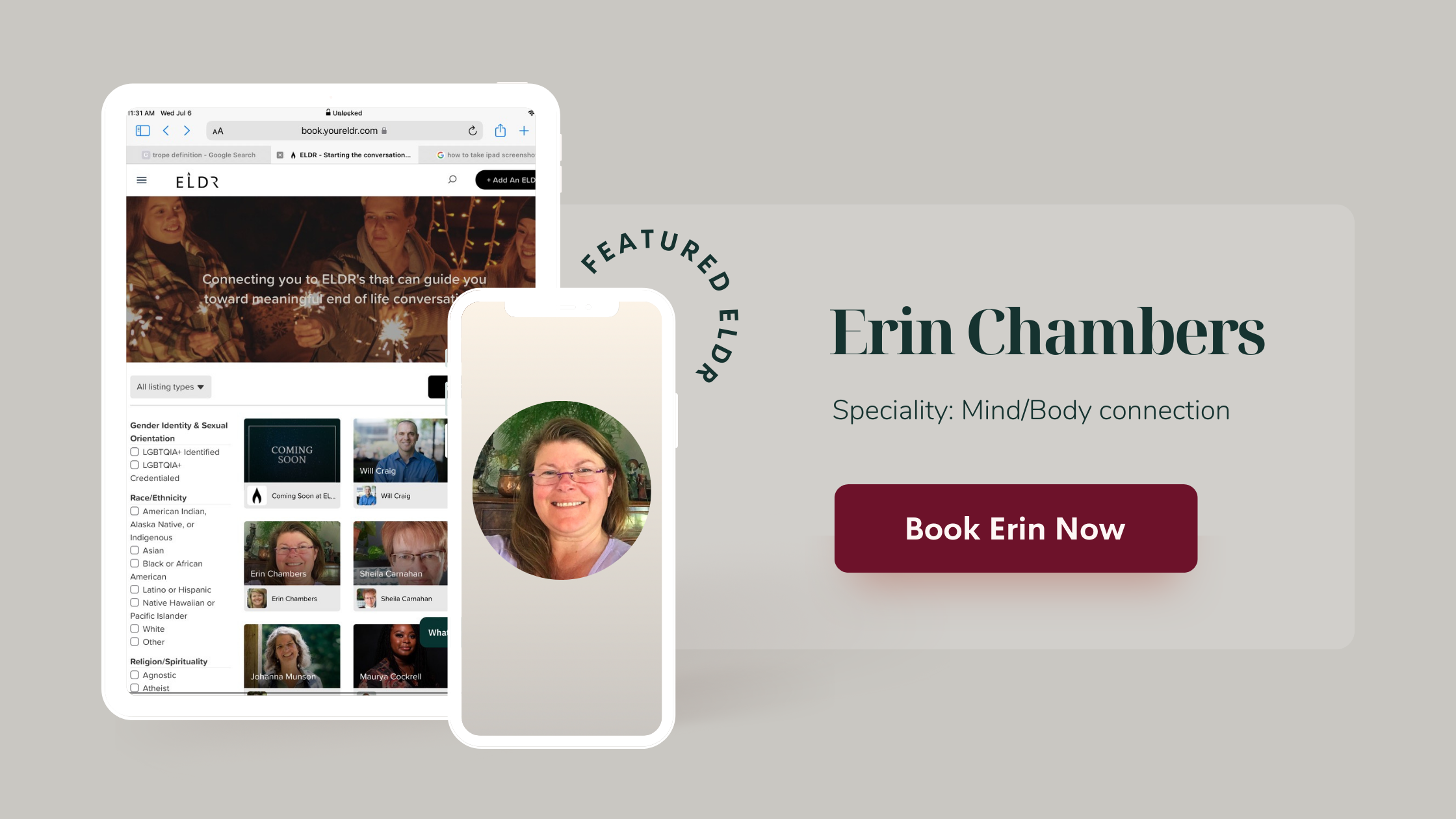Have you taken time to consider your relationship with death?
Congratulations for reading this article. By doing so, you are becoming more familiar with death. Death is something we will all experience whether it is someone we know intimately, a close friend, an acquaintance, someone in our community or in the world at large.
Our experiences shape our expectations. Oftentimes our reactions create emotional triggers for future events.
Perhaps you have never thought about the intimate details of a death, not only when and how it occurred, but what took place afterwards. How the news was shared, by whom and, potentially, the responses that followed - either by you or someone else.
Maybe it was seeing someone in a care home or other facility in the days, months or years prior to death that impacted you most.
Not being allowed to attend a funeral before you were a certain age - perhaps instead of causing curiosity, it created fear.
Witnessing someone experience the certainty of grief and pain following a traumatic and unexpected death shocked you and, truthfully, you just aren’t sure how to deal with it.
It may be that you had positive death related experiences where you have been included in ceremonies or other end of life rituals. Taking care of someone helped you feel useful.
You have fond memories of sharing stories, smiles and tears at a living funeral you attended.
Possibly you were able to engage with a close friend's end of life planning, which created conflicted feelings for you. How is it conceivable to enjoy something that will also bring you future sadness?
Improving our Relationship with Death
Reflecting on our past experiences with death might help us better learn, if not what we want, certainly what we don’t want others to experience. Although death is our common path, not all deaths are the same.
What emotions do you want to create or experience? What values are important to you? Perhaps it’s time to rewrite your death relationship/experience script.
“We don’t live fully because we reject death.” – John D. Morgan
“Death is not the opposite of life, but a part of it.” – Haruki Murakami
“Death is Nature’s way of saying, ‘Your table is ready!’” – Robin Williams
There are as many ways to relate to death as there are ways to relate to living - it’s an individual choice, after all. From philosophy to humor, from denial to taking part in “living funerals,” the human experience runs the gamut.
But chances are, unless we consciously change our way of thinking about death, we won’t change the way we feel about it.
My Personal Relationship With Death
We didn’t talk about aging, dying, and death in my family when I was younger. A high school classmate died of leukemia before graduation, and I still recall the deep impression that ritual of grief made as we mourned his loss with friends at his Catholic funeral. I contrast that with how we ‘handled’ my grandfather’s death: a phone call, my mom flew off to attend the service, she came back and we never mentioned it.
My dad’s mother died when I was in my 20s, and seeing her embalmed body at the funeral home was a huge shock. My image of her was of someone always in motion, and yet there she was looking as if she would get up and go bustle around the kitchen getting dinner ready. Such confusion!
Accompanying my father through his end of life process led me to solidify what I had been coming to awareness of over the previous decade: we are souls having a human experience.
A Shifting Perspective
My sense is that we are graced with the chance to inhabit these physical bodies for a certain span of time. To what extent we learn to love ourselves, and others, impacts how we feel about the end of that time.
The trajectory of my life changed because of my dad’s willingness to share how a life full of purpose, then the experience of loss, aging and growing dependence, was at the same time a curse and a blessing.
I live my life more fully in the present, with less fear of the end. I hold close the ones that I love, and most importantly, seek to reach the highest possible expression of myself. When the end comes, I hope to meet it with grace.



